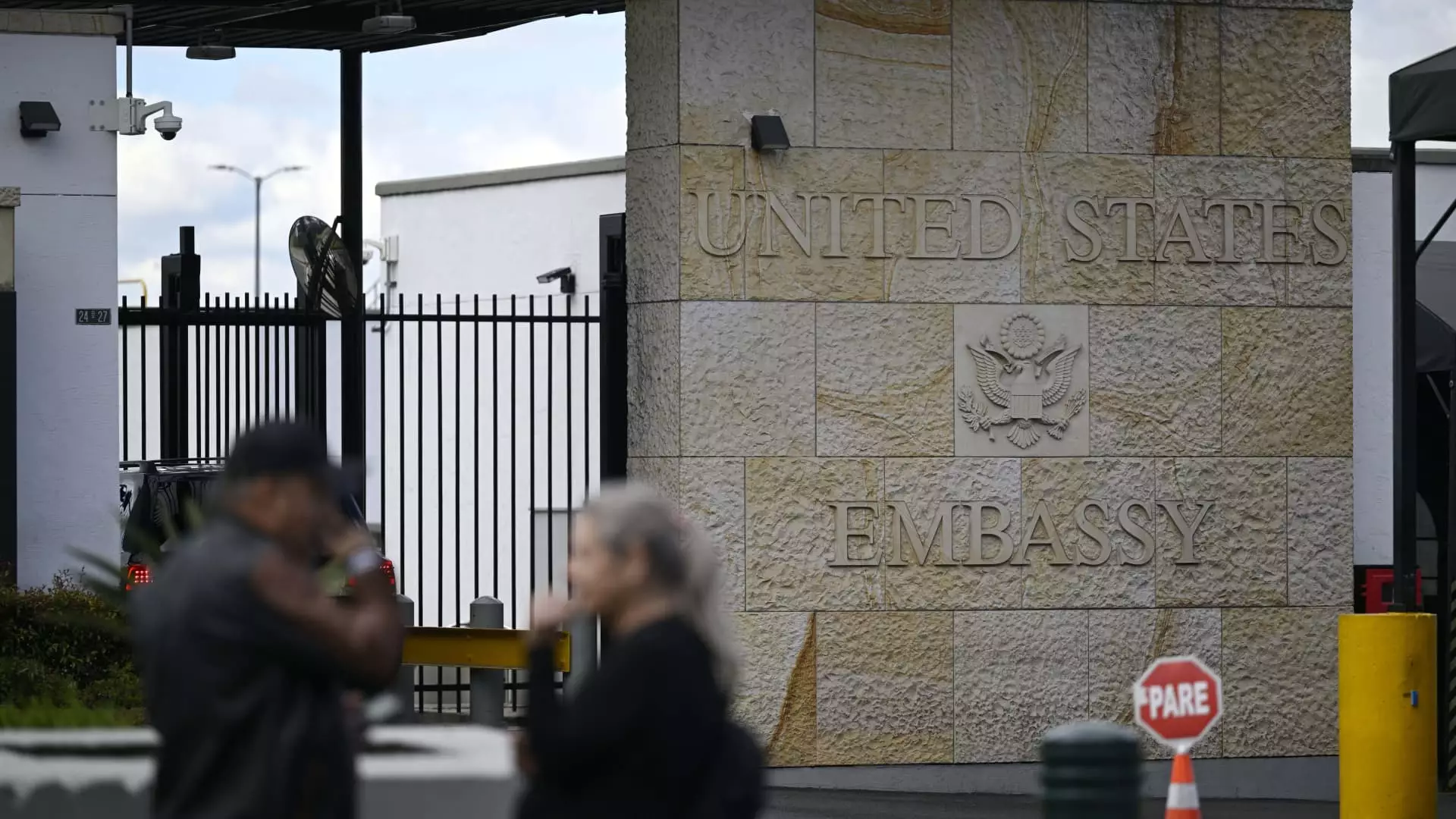The impact of the Trump administration on U.S. foreign relations continues to unfold, marked by significant changes within the State Department. Recent reports indicate a clear directive from President Trump aimed at reducing staff levels at U.S. embassies around the globe. This retrenchment not only signals a shift in diplomatic staffing but also calls into question the broader implications of such a strategy for American foreign policy.
Sources have disclosed that U.S. embassies are being instructed to anticipate cuts in both American diplomats and local support staff by approximately 10%. These reductions highlight the administration’s ambition to reshape the diplomatic workforce, a move that could potentially undermine the effectiveness of U.S. diplomatic missions. Historically, embassies have relied heavily on locally hired staff, who bring essential cultural and contextual knowledge. Reducing their numbers could detrimentally affect the ability of U.S. diplomats to engage effectively with foreign counterparts.
Furthermore, the decision to cut around 60 contractors from the State Department’s Bureau of Democracy, Human Rights, and Labor signifies a broader trend of prioritizing particular areas of foreign policy while potentially neglecting others. This selective approach raises concerns over the U.S. commitment to global human rights advocacy and democratic principles, which have traditionally been cornerstones of American diplomacy.
In alignment with these staff reductions, President Trump issued an executive order mandating Secretary of State Marco Rubio to streamline the Foreign Service to better reflect his “America First” agenda. Such directives portray a marked departure from traditional diplomatic practices and indicate a desire to create a more ideologically uniform diplomatic corps. The expectation that noncompliance with the administration’s policies could lead to disciplinary actions, including termination, places immense pressure on diplomatic personnel to align with the current foreign policy trajectory.
The potential overhaul of the Foreign Affairs Manual, which outlines the procedures for State Department operations, suggests a fundamental restructuring of how the department functions. This could lead to the establishment of practices that prioritize political loyalty over diplomatic expertise, a concerning development for those invested in the integrity of U.S. foreign relations.
The Trump administration’s focus on re-evaluating foreign aid mechanisms is another significant aspect of its diplomatic realignment. Just hours after being inaugurated, President Trump ordered a freeze on most U.S. foreign aid, sparking debates over the role of humanitarian assistance in advancing American interests abroad. Under the direction of entrepreneurial figures like Elon Musk, known for his close ties to Trump, the scrutiny of foreign aid and its administration has intensified. This scrutiny, coupled with a disdain for traditional bureaucratic structures, raises questions about the continuity of the U.S.’s commitment to global poverty alleviation and development assistance.
The elimination of agencies like the U.S. Agency for International Development (USAID) has raised alarms among advocates for international development. Critics argue that dismantling such entities undermines the U.S.’s ability to engage constructively with the world’s most pressing challenges, including climate change, health crises, and humanitarian disasters.
The restructuring of the U.S. diplomatic corps and the administration’s focus on internal loyalty over traditional diplomatic values poses profound risks. As President Trump continues to pursue his vision of a redefined foreign policy anchored in nationalism, the implications for global stability, human rights, and international cooperation remain uncertain.
While the administration promotes its approach as a necessary recalibration of U.S. interests, it risks alienating allies and diminishing the country’s global standing. The challenge ahead lies in balancing the need for a responsive and adaptive diplomatic workforce with the principles that have historically underpinned American foreign policy. As the situation progresses, it will be essential to monitor not only the operational impacts of such changes but also the overarching narrative of what it means to engage with the world as a representative of American diplomacy.



Leave a Reply